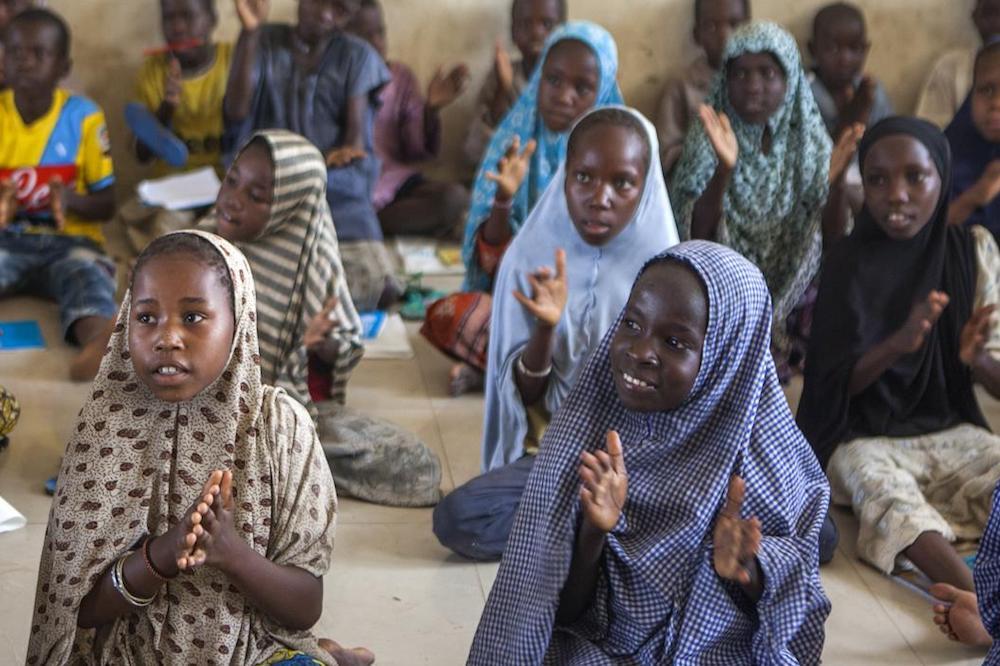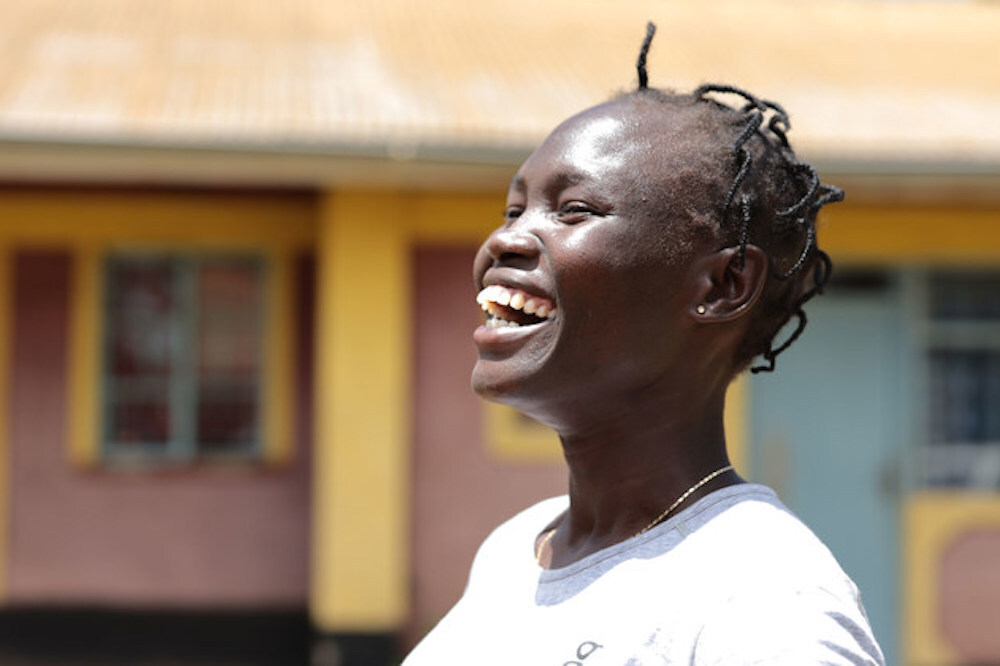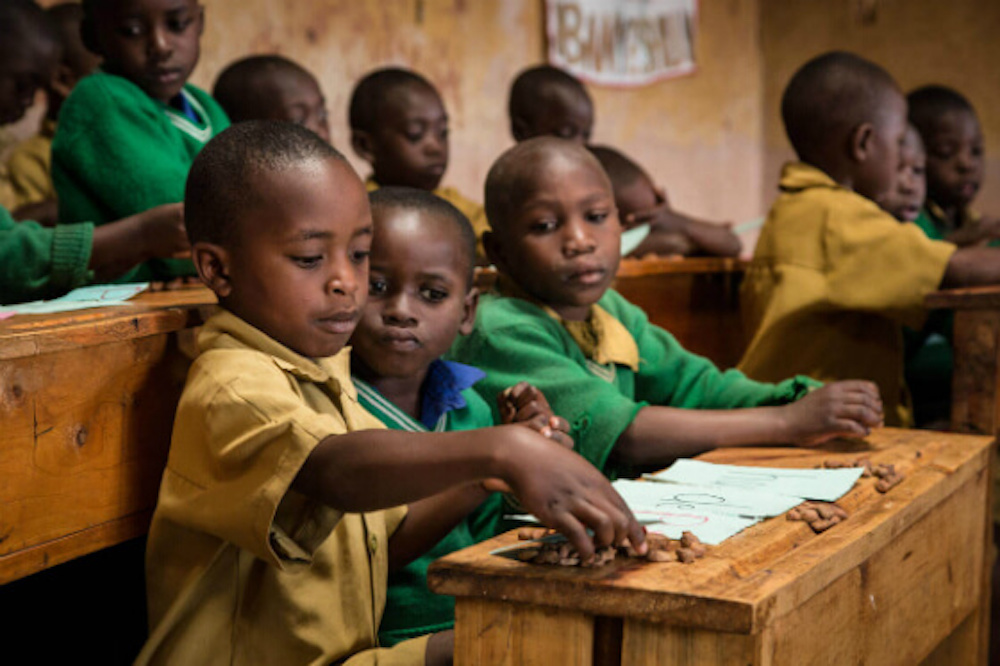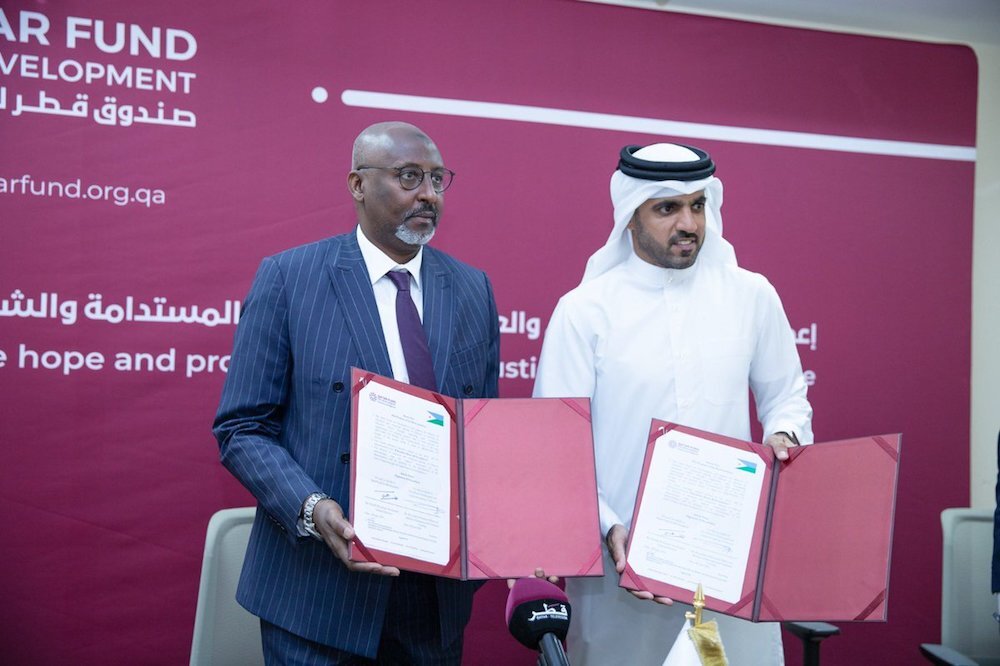
Five things you need to know this week about global education

Child labour, Children in conflicts, Education in emergencies
New classrooms for children affected by conflict in Nigeria - and the Olympic athletes who started running competitively while they were at the same refugee camp.
New classrooms for conflict zone children
At least 20,000 children in Nigeria’s conflict-torn Borno State will benefit from the building or renovation of classrooms and toilets in a programme funded by the European Union.
The facilities will support girls’ education, reduce classroom congestion and help more children go to school and stay in education.
Children in northeastern Nigeria are among the most educationally disadvantaged in the world. Since 2009, more than 1,400 schools have been destroyed and 2,295 teachers killed there in attacks on education.
“Children in north-eastern Nigeria face unique challenges. The pandemic has complicated existing challenges in access to and quality of education, even further. While many barriers remain, we are pleased to see progress is being made,” said Rushnan Murtaza, Deputy Representative in Nigeria for UNICEF, which will implement the programme through state and local partners.
From refugee school to the Olympics

Rose Nathike Likonyen and her family left South Sudan because of the war (UNHCR)
Two South Sudanese athletes who started to run competitively while at school in the same Kenyan refugee camp have been selected to complete in the Tokyo Olympic Games next month.
Rose Nathike Likonyen and James Nyang Chiiengjiek will both run the 800 metres for the 29-person Refugee Olympic Team, which was announced this week.
They both fled from conflict in their home country and ended up in Kakuma refugee camp, where they were supported by the UN agency UNHCR.
“It shows what is possible when refugees are given the opportunity to make the most of their potential,” said Filipo Grandi, UN High Commissioner for Refugees. “They serve as a reminder that everyone deserves the chance to succeed in life.”
Poorer children lost more school time in pandemic

Children in some of the poorest countries in the world have lost a large part of their lifetime schooling (Save the Children)
Children in poorer countries have lost 66% more of their lifetime number of schooldays during the Covid-19 outbreak compared to their peers in richer countries. On average, girls in poorer countries missed 22% more days in school than boys, new analysis by Save the Children found.
Meanwhile, schools and colleges across Pakistan, which had been shut since April, began to reopen for in-person classes this week after a decline in cases following a third wave of Covid-19.
But Sindh province – where all teachers are vaccinated – is not restarting primary classes, while six of the 30 districts in Khyber Pakhtunkhwa have kept all schools closed. In Punjab, half of students will attend classes one day and the other half the next.
In Uganda, schools which had just opened for the new term have been closed again because of a new wave of Covid-19. All schools and colleges in the country will stay shut for seven weeks.
Covid crisis pushes more children into work
Child labour has risen for the first time in 20 years, the UN said yesterday – with one in 10 children in work worldwide and millions more at risk due to Covid-19.
The number of child labourers has increased to 160 million from 152 million in 2016, with the greatest rise in Africa due to population growth, crises and poverty, said a report by the International Labour Organization and UNICEF.
“Well into a second year of global lockdowns, school closures, economic disruptions and shrinking national budgets, families are forced to make heart-breaking choices,” said UNICEF Executive Director Henrietta Fore, ahead of tomorrow’s World Day Against Child Labour.
The UN said child labourers may now be working longer hours or under worse conditions due to pandemic-related economic shocks and school closures. The report highlighted an increase in the number of children aged five to 11 years in child labour, who now account for just over half of the global figure.
Project to enrol Djibouti children

The Qatar Fund For Development and the country’s government sign an agreement to support out-of-school children (EAO)
A programme will aim to enrol 35,000 out-of-school children in Djibouti, where about one in six are deprived of an education.
The Qatar Fund For Development and the country’s government will support the project, launched by Education Above All Foundation and the World Bank.
It will encourage enrolment and transition to secondary education, particularly of girls, together with teacher training and providing teaching and learning materials in required languages.
Djibouti’s government said the enrolment rate increased from 58% in 2006 to 79% in 2015 – but that girls had a lower enrolment rate. UNICEF says nomadic, migrant and refugee children, those with disabilities and girls are most likely to be out of school in the Eastern African country.
More news

